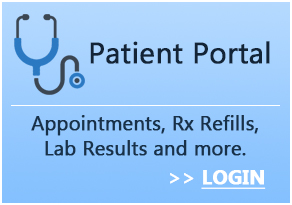
The term “prenatal care” is thrown around a lot, but what does it actually entail?
Prenatal care is essential for ensuring the health and well-being of both you and your baby. It involves regular check-ups with your OBGYN, who will play a vital role in managing your prenatal care. They will provide you with essential medical services, help with your pregnancy plans, and prepare for your delivery.
With our experts at Empire — your trusted Buffalo OBGYN — we’ll explore your care options during pregnancy, the different types of prenatal care providers, what to expect at your appointments, and important factors to consider throughout your pregnancy.
Choosing the Right Prenatal Care Provider
When it comes to prenatal care, you have several options for healthcare providers. Here’s a breakdown of the most common types:
OBGYNs (Obstetrician and Gynecologist): An OBGYN is your maternity doctor. They’re medical professionals who specialize in women’s health, including pregnancy and childbirth. They provide a wide range of services, from check-ups to complex obstetric care. They’re equipped to handle all aspects of pregnancy, including monitoring your health, preparing you for delivery, and more, such as:
- Routine pregnancy check up. Monitoring your pregnancy’s progress and dealing with any concerns.
- Prenatal testing. Conducting blood tests, ultrasounds, and genetic screenings.
- Delivery. Assisting with both vaginal and cesarean births.
- Postpartum care. Providing care and support after childbirth.
Midwives: Midwives are trained healthcare professionals who specialize in women’s health and childbirth. They often have a more holistic approach to prenatal care, focusing on natural childbirth and supporting women throughout the pregnancy and birth process. Midwives can provide care for low-risk pregnancies and support women who choose to have home births or water births. However, they can also assist in hospital births, if desired.
Family Practitioners: While not as specialized as OBGYNs or midwives, family practitioners can also provide prenatal care, pregnancy tips, and fill you in with things to know about pregnancy. Going to a family practitioner is more common in less complex pregnancies or in areas where specialists may not be readily available. However, a family practitioner may refer you to an OBGYN for more specialized care, if needed.
Choosing the right prenatal care provider is a personal decision. Consider your preferences, your pregnancy’s complexity, and the availability of different providers in your area. Don’t hesitate to ask for recommendations and testimonies from other women in your community!
What to Expect at Your Prenatal Appointments
Your prenatal appointments will vary in frequency throughout your pregnancy. Here’s a general overview of what to expect for a prenatal care timeline:
First Trimester Visits
Your first prenatal appointment will happen during your first trimester — usually around 8 weeks. You’ll likely have more frequent appointments to monitor your pregnancy in the early stage, since that’s when issues are most likely to appear. Your healthcare provider will typically:
- Confirm your pregnancy. This may involve a blood test and/or ultrasound.
- Review your medical history. Discuss any pre-existing health conditions or past pregnancies.
- Discuss your lifestyle. Talk about your diet, exercise habits, and any medications you’re taking.
- Address your concerns. Your provider will be happy to answer any questions or address any concerns you may have as part of your first trimester prenatal care. Take this opportunity to ease your mind and get professional guidance!
Second Trimester Visits
In the second trimester, your appointments may become less frequent. However, they will still be important for monitoring your baby’s growth and development. Common procedures during this time include:
- Anatomy scan. Taking place around 20 weeks of gestation, this ultrasound provides detailed images of your baby’s organs and body parts. This is also when many people learn the sex of their baby!
- Gestational diabetes screening. This critical blood test checks for gestational diabetes — a condition that can develop during pregnancy, even if you have no history of diabetes. Gestational diabetes can affect the health of you and your baby if not properly diagnosed and monitored.
- Monitoring fetal growth. Your healthcare provider will measure your baby’s growth and development to check for abnormalities and ensure they are receiving the nutrients they need through the placenta.
Third Trimester Visits
During the final stages of pregnancy, your appointments will become more frequent to monitor your baby’s well-being and prepare for delivery. Your healthcare provider will:
- Monitor your baby’s position. Determine if your baby is head-down and ready for delivery.
- Check for signs of labor. Your provider will monitor you for any signs of labor, such as contractions, dilation, and effacement.
- Discuss your birth plan. Discuss your preferences for childbirth and any questions you may have about the delivery process.
- Perform final checks. Your provider will perform a thorough examination to ensure you and your baby are healthy and ready for delivery.
Routine Tests and Screening During Pregnancy
Guidelines for prenatal care involve a series of tests and screenings to monitor your health and your baby’s development. Here’s a breakdown of some common procedures:
Blood Tests
Blood type and Rh factor: Determines your blood type and whether you’re Rh negative, which can affect your pregnancy if your baby is Rh positive.
Complete blood count (CBC): Checks for anemia and other blood disorders.
Rubella (German measles) titer: Determines your immunity to rubella, a virus that can harm your baby if you’re not immune.
Screening for sexually transmitted infections (STIs): This can help identify and treat any STIs that could affect your pregnancy.
Genetic carrier screening: This can identify if you and your partner are carriers of certain genetic conditions.
Gestational diabetes screening: A blood test to check for gestational diabetes, a condition that can develop during pregnancy.
Ultrasounds
Dating Sonogram: This ultrasound is typically performed between 6 to 12 weeks of pregnancy to confirm the pregnancy and estimate the due date.
Anatomy scan. This more detailed ultrasound is usually performed around 20 weeks of pregnancy to assess your baby’s growth and development.
Your doctor may recommend additional sonograms based on their findings or simply to monitor your baby’s progress. You can also request to have additional ultrasounds, but you may need to pay for them out-of-pocket. Many insurance plans have a limit on the number of scans they will cover during a single pregnancy.
Genetic Screening
Chromosomal abnormalities: These screenings can detect chromosomal abnormalities, such as Down syndrome or trisomy 18.
Neural tube defects: These screenings can detect defects in the brain and spinal cord.
These tests are usually performed through blood tests or ultrasounds included in your provider’s prenatal care services. The results can help you make informed decisions about your pregnancy and prepare for the future.
However, bear in mind that these are just a few examples of the many tests and screenings that may be recommended during your pregnancy. Your healthcare provider will discuss the specific tests that are appropriate for you based on your individual circumstances.
Key Factors to Consider in Prenatal Care
Your personal health history plays an important role in your prenatal care plan. Be sure to share any pre-existing health conditions, previous pregnancies, and any family history of genetic disorders with your healthcare provider. This information will help them personalize your care to your specific needs.
Maintaining a Healthy Lifestyle
A healthy lifestyle is essential for both you and your baby’s well-being. Here are some things to keep in mind:
Nutrition. Eat a balanced diet rich in fruits, vegetables, whole grains, and lean protein.
Exercise. Regular physical activity can help you stay healthy, relieve anxiety, and prepare your body for childbirth. Consult your healthcare provider for guidance on safe exercises, and don’t start any new programs without approval from your doctor.
Avoid harmful substances. Alcohol, tobacco, and other drugs (including certain prescriptions and OTC medications) can harm your developing baby. Be sure to let your doctor know about ANY medications or supplements you are taking.
Prenatal vitamins. Take prenatal vitamins as prescribed by your healthcare provider.
Mental and Emotional Well-being
Pregnancy includes moments of both joy and stress. It’s important to take care of your mental and emotional health. Here are some tips to do just that:
- Talk to someone: Share your thoughts with your partner, friends, or family.
- Seek professional help: If you’re struggling with anxiety or depression, don’t hesitate to seek professional help.
- Practice relaxation techniques: Techniques like meditation, yoga, or deep breathing can help reduce stress.
Remember, you’re not alone. Many women experience a range of emotions during pregnancy. By taking care of your mental and emotional health, you can ensure a more positive and enjoyable pregnancy experience.
Preparing for Your Prenatal Appointments
To make the most of your prenatal appointment schedule, it’s helpful to come prepared with questions and information.
Questions to Ask Your OBGYN:
- What can I expect during labor and delivery?
- What are the risks associated with my pregnancy, given my age, health history, or other factors?
- Are there any genetic screenings or tests I should consider?
- What are the signs of preterm labor and what should I do if I experience them?
- How can I manage common pregnancy discomforts like morning sickness, heartburn, or back pain?
- What are the benefits and risks of different pain management options during labor?
- How often should I see you for prenatal check-ups?
- What should I do if I experience bleeding or spotting during pregnancy?
Items to Bring to Your Appointments:
Medical records: Bring any relevant medical records, including those from previous pregnancies.
Questions: Write down any questions you have for your healthcare provider. Don’t be shy!
List of symptoms: If you’re experiencing any unusual symptoms, bring a list to discuss with your provider.
Pregnancy journal: Consider keeping a pregnancy journal to track your symptoms, weight, and any other important information.
By coming prepared to your prenatal appointments, you can ensure that you’re well-informed and actively involved in your care.
A Healthy Pregnancy Starts with Prenatal Care at Empire OBGYN
Prenatal care is key to ensuring an expectant mother will have the best outcomes possible. Do everything you can to maintain a healthy lifestyle, manage stress, and communicate openly with your healthcare provider. Regular prenatal visits are crucial for monitoring your pregnancy’s progress and identifying any potential concerns as early as possible.
By actively engaging in your prenatal care, you can help ensure a healthy and positive pregnancy experience. We hope we’ve been able to shed some light on the importance of prenatal care for both the baby and the mother-to-be.
At Empire — your Western New York OBGYN and partner in health — we’re committed to providing you with exceptional prenatal care you can trust.
Contact us today at (716) 877-1221 to schedule your initial prenatal appointment. Let the experienced providers at Empire OBGYN help you have a healthy and fulfilling pregnancy journey!





